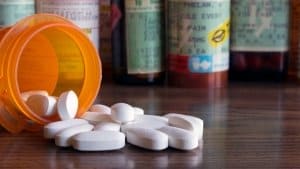Certain Drugs Given to ICU Patients May Extend Their Recovery Time
 New research has revealed how certain drugs provided to patients in intensive care unit (ICU) settings may, instead of shortening recovery time after hospital discharge, actually lengthen that time and prolong muscular weakness.
New research has revealed how certain drugs provided to patients in intensive care unit (ICU) settings may, instead of shortening recovery time after hospital discharge, actually lengthen that time and prolong muscular weakness.
A recent study published in the online journal CHEST closely examined the impact of particular drugs administered to patients on medical ventilation. Such a device is used to help patients breathe and is able to sustain and stabilize respiration when the individual is injured or ill and not able to properly breathe. The research effort was led by a team from the Department of Medicine at the University of Chicago.
The potential side effects of life-saving drugs
When a person is in the ICU, particular medical procedures and prescription drugs are provided to help sustain the patient’s life while his or her body attempts to recover and heal. Some of these drugs can have long term, negative effects on patients – in particular, reducing muscle strength. This study reviewed healthcare data from more than 170 patients who voluntarily participated in a random clinical trial. The trial involved the testing of patients’ muscle strength during their ICU stay.
Some patients moved into ICU are in the process of experiencing septic shock. In other cases they developed the condition during their stay at the hospital. When a patient suffers from a particular form of shock, such as septic shock, drugs referred to as vasopressors are often used to increase blood pressure. Septic shock occurs when the blood pressure as well as the blood circulation within the body of the patient drops. Without quick intervention, the patient’s breathing is significantly slowed down and major organs in the body are deprived of the necessary oxygen and blood they need to function properly.
With a patient placed on a ventilator and administered particular drugs such as epinephrine and norepinephrine, as well as others, the circulation and breathing of the individual is restored. The machine handles the patient’s breathing while the drugs increase the patient’s blood pressure by promoting the contraction of the blood vessels.
Although it is widely known that patients discharged from ICU often experience myopathy (muscle weakness) and neuropathy (peripheral nerve damage), it was not previously understood that the administration of particular drugs could precipitate longer term health difficulties.
If you have suffered negative health complications as a result of receiving these drugs in an ICU you may want to speak with an experienced medical malpractice attorney to learn about your options.
The study’s findings
The scientists looked at how various types of drugs may affect ICU patients under ventilation and given the above-mentioned vasopressors for the management of sepsis and other shock conditions. Some of the specific conclusions found by the study include:
- ICU patients under ventilation and given the vasopressors were three times as likely to experience muscle weakness. For each additional day the patient was placed on the drug there was a 35 percent increase chance of developing muscle weakness related to ICU.
- Longer-term muscle weakness was only associated with certain vasopressors. The types of neurological receptors targeted by the drugs determined the difference.
- Certain drugs connected with ICU related muscle weakness, such as norepinephrine, when given in greater dosage, caused more severe muscle weakness.
Patients who are seriously ill are unable to directly handle their own care. Therefore, the research information mentioned above is essential to help physicians make the best decisions for their patients and also help patients understand if they have been the victim of medical malpractice.
Please contact Paulson & Nace, PLLC through this contact form or by calling 202-463-1999.

For more than 40 years, Barry J. Nace has worked to protect the rights of victims of medical malpractice and other personal injuries. Throughout his career, he has proven that multimillion-dollar awards are not a matter of luck, but the result of experience, hard work, outstanding trial skills, and an unquestioned dedication to justice. To date, Mr. Nace has produced dozens of verdicts and settlements in excess of $1 million with three in excess of $30 million. Read more about Barry J. Nace.
